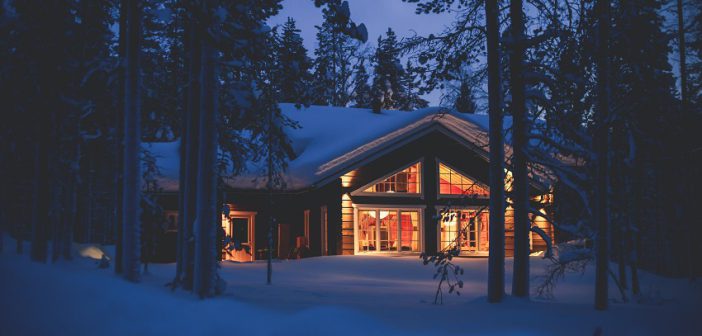Mother nature has no bounds, and this is especially apparent when it comes to the weather. The weather is something that everyone deals with every day, and while we’re all accustomed to what’s normal in our area, there are times when the weather isn’t normal but can also be downright dangerous.
Severe weather has the potential to spiral into natural disasters, which can leave homes destroyed, lives lost, and so much more. It’s terrifying to think, but severe weather is just something that’s considered normal. But you can still keep your family completely safe even with someone like this. So, here is everything you need to know about preparing for severe weather conditions.
What’s Considered Severe Weather?
Severe weather is any type of extreme weather condition that can cause harm or disrupt everyday life. Severe weather can include natural disasters such as hurricanes, tornadoes, floods, and wildfires. It can also include extreme temperatures, strong winds, hail storms, and other hazardous conditions. Knowing how to prepare for and respond to severe weather is important in order to keep your family safe, as each of these conditions will usually have different methods and approaches for staying safe.
Identify Signs of an Impending Severe Weather Event
Even though natural disasters are known for popping up unexpectedly, they will be expected more during certain seasons. For example, you can count on the spring and summer months to have tornadoes and more thunderstorms, while Autumn and spring tend to be prone to flooding, and the winter tends to be blizzards and ice storms. It’s important to look into the signs ahead of time so you know what to expect for these weather events. However, it’s still ideal to always have a plan in advance, as this is going to be the number one way to keep your family safe.
Create a Family Emergency Action Plan
Creating a family emergency action plan is an important step in ensuring the safety and security of your family during times of crisis. It’s going to be ideal for keeping up with family wellness too. It is a document that outlines the steps to be taken in order to prepare for, respond to, and recover from an emergency situation.
By creating an emergency plan, you can provide your family with peace of mind knowing that they have a plan in place should something happen. It’s going to be more challenging to kid smaller kids on board, but having your spouse and even your teens on board with this emergency action plan can do wonders.
Do You Know How to Protect Your Home from Severe Weather Conditions?
One challenge that many households face, especially when trying to keep their entire family safe, is learning and understanding how to protect their home. You can’t expect to protect your family if your home is damaged. For the most part, when it comes to thunderstorms, ice, tornadoes, and floods, the way to protect your home is going to be the same.
Ideally, you get regular checkups on your home from professionals, such as for the foundation, plumbing, and electricity. It doesn’t seem like much, but these can stop working even during the worst weather. So, by knowing and understanding what’s wrong, you may be able to prevent issues when severe weather hits. This way, you, your house, and everyone inside will be completely safe.
Know the Most Important Supplies Needed
Emergencies can happen at any time, and it is important to be prepared for them. This is especially apparent when it comes to natural disasters, as the effects can last for days or even up to weeks. Having the right supplies on hand can help you stay safe and make sure you have the necessary items to survive in an emergency situation.
Generally speaking, you’ll need an emergency kit checklist, an emergency food supply list, and first aid kit supplies. But you can always go a step further and get a generator for apartment or even a house in case your electricity goes out. Knowing what items to have on hand can help you be better prepared for any type of emergency.
Stay Informed About Potential Severe Weather Events in Your Area
Staying informed about potential severe weather events in your area is essential to ensure you and your family are safe. By understanding the early warning signs of storms, monitoring local meteorology reports, and receiving severe weather alerts, you can be prepared for any situation.
Knowing what to look out for and how to stay informed will help ensure that you are always aware of the potential risks associated with severe weather events. If you’re on the road, it’s going to be as easy as using a radio, but having a weather app like the National Weather Service on your phone or even their website can help a lot too.
Create a Family Communication Plan
Natural disasters can occur anytime and anywhere, so families need to have a plan of communication in case of dangerous weather conditions. Having a family communication plan can help ensure that everyone is safe and informed during severe weather events. It will also help reduce the stress and confusion that often accompanies these situations. While it’s easiest if everyone is at home, the reality is that natural disasters will basically happen anywhere at any time. So creating a proper communication plan will help keep you and your little ones safe.
Understand the Different Types of Insurance Coverage for Homes
Severe weather, such as hurricanes and floods, can cause significant damage to property and belongings. It is important to have the right insurance coverage in place in order to protect yourself from financial loss caused by storms. There are a variety of storm insurance policies available, including those that cover hail, windstorms, floods, and hurricanes.
It is important to understand the types of coverage that are available and how they can help you if a storm occurs. Generally speaking, when you get natural disaster home insurance, it will cover the basics, such as ice, floods, hail, wind, tornadoes, etc.





A home backup generator is actually a good investment. A generator available can be a huge advantage: you will be able to charge your phone and stay in touch and cook some food.
Another thing you should do is check your heating system. The last thing you’ll want to deal with at extreme temperatures is a broken heater. Do regular heating system maintenance at least once a year.
Thanks for such a valuable addition! Checking a heating system regularly is important, indeed.
Removing debris from the burners and switching out the filter are two things that you can do yourself without third-party help. However, for a complete check-up, it’s better to hire a professional HVAC contractor at least once a year.